Prescription medications play a vital role in treating pain, anxiety, sleep disorders, and other medical conditions. However, even when taken as directed, some prescriptions carry a significant risk of dependence.
Understanding how addiction develops—and recognizing the warning signs—can help individuals and families take action early. Magnolia City Detox in the Houston area provides compassionate, evidence-based support for those struggling with prescription drug addiction.
Our comprehensive addiction treatment programs are designed with a patient-focused approach, ensuring each patient receives personalized care and support throughout their recovery journey.
Key Takeaways
- Prescription drugs can become addictive even when used as directed, especially opioids, benzodiazepines, and stimulants.
- Tolerance and dependence develop gradually, making early signs—like withdrawal, dosage increases, or mood changes—important to recognize.
- Professional addiction treatment, including medical detox and therapy at Magnolia City Detox, offers the safest and most effective path to recovery.
What is Prescription Drug Addiction?
Question: What is Prescription Drug Addiction?
Answer: Prescription drug addiction occurs when medications—often opioids, benzodiazepines, or stimulants—alter the brain’s reward and chemistry over time, creating dependence, cravings, and withdrawal symptoms. Even when taken as prescribed, these drugs can cause the brain to rely on them for normal functioning. This leads to compulsive use despite harmful consequences. At Magnolia City Detox, Conroe, TX, medically supervised detox programs and individualized treatment plans are designed for patients to safely manage withdrawal and begin long-term recovery.
Understanding Prescription Drug Addiction
Prescription drug addiction is a chronic disorder characterized by compulsive drug use and an inability to stop despite harmful consequences. While medications are designed to help, some can alter the brain’s chemistry, leading to tolerance, dependence, and eventually addiction.
Substance abuse can result from the misuse of prescription medications, leading to serious health risks.
Common Types of Addictive Prescription Drugs
 Opioids
Opioids
Used to treat pain. Common examples include:
- Oxycodone
- Hydrocodone
- Morphine
These medications are highly effective—but also highly addictive.
Stimulants
Typically prescribed for ADHD, such as:
- Adderall
- Ritalin
Misuse can lead to increased energy, euphoria, and eventually dependence.
Benzodiazepines
Prescribed for anxiety and insomnia, including:
- Xanax
- Valium
These “benzos” can create strong physical and psychological dependence.
How Prescription Drug Addiction Develops
Many addictions begin unintentionally. A person starts taking a medication for a legitimate medical reason, but over time, the body adapts.
Tolerance
The initial dose becomes less effective, pushing individuals to increase the amount to feel the same relief.
Physical Dependence
The brain and body become reliant on the drug to function. When levels drop, withdrawal symptoms may appear—sometimes severe enough to keep individuals using the drug to avoid discomfort.
Escalation
As tolerance and dependence grow, the risk of addiction rises, even when the medication is taken exactly as prescribed.
The Science Behind Prescription Drug Addiction
Prescription drugs interact directly with the brain’s reward system.
Dopamine and the Brain
Opioids and benzodiazepines trigger a surge of dopamine, creating intense pleasure and reinforcement. This artificial reward can override natural sources of pleasure like food, relationships, or hobbies.
Brain Adaptation
With repeated use, the brain begins to rely on the drug to feel normal. Natural dopamine production decreases, leading to:
- Reduced ability to feel pleasure
- Strong cravings
- Difficulty stopping even when trying to quit
Understanding this neurological process highlights why professional help—such as medically supervised medical detox in the Houston, TX area—is essential.
Signs and Symptoms of Prescription Drug Addiction
Recognizing early warning signs can save lives. People struggling with prescription drug dependence may show:
Needing higher doses to achieve the same effect.
Symptoms may include nausea, anxiety, shaking, sweating, or severe discomfort when the drug is not used.
Doctor shopping, falsifying prescriptions, or obtaining medications illegally.
Decline in performance at work, school, or home.
Continuing the drug even when it causes health, financial, or legal problems.
Secrecy, irritability, depression, or social withdrawal.
Avoiding friends or family to hide drug use or due to shame.
Risks and Consequences of Prescription Drug Abuse
 Abusing prescription medications, as well as drug and alcohol abuse, can cause severe and long-lasting harm.
Abusing prescription medications, as well as drug and alcohol abuse, can cause severe and long-lasting harm.
Alcohol misuse, like prescription drug abuse, can lead to severe health and social consequences.
Overdose
Especially common with opioids and benzodiazepines.
Physical Health Problems
- Organ damage
- Respiratory issues
- Heart complications
- Cognitive impairment
Mental Health Effects
Anxiety, depression, paranoia, and worsening emotional distress.
Social and Legal Consequences
Strained relationships, job loss, financial instability, or criminal charges.
Specific Concerns by Drug Type
Opioids: A National Crisis
Opioid misuse remains one of the leading substance-related issues in the U.S. Dependence often starts with prescribed pain relief and escalates quickly.
For individuals with opioid dependence, drug detox is often necessary to safely manage withdrawal symptoms under medical supervision and begin the recovery process.
Benzodiazepines
Stopping them abruptly can cause severe withdrawal—sometimes life-threatening—making medical supervision essential.
Stimulants
When misused, they can lead to heart problems, aggression, and severe psychological dependence.
Risk Factors for Prescription Drug Addiction
Some individuals face a higher risk due to:
- Genetics: Family history of addiction
- Mental Health Disorders: Anxiety, depression, trauma
- Environment: Peer influence, stress, household drug use
- Early Exposure: Using addictive substances at a young age
Individuals in Texas also have access to specialized prescription drug addiction treatment and Magnolia rehab support services.
Behavioral Health and Prescription Drug Addiction
Prescription drug addiction is not just a physical struggle—it deeply impacts behavioral health and every aspect of a person’s life. At MagCityDetox, we recognize that substance use disorders often come with unique challenges that require specialized care.
Our Magnolia detox programs are thoughtfully designed to provide a safe and comfortable environment where clients can begin their healing process with confidence.
Our team of experienced medical professionals and behavioral health technicians works collaboratively to develop a comprehensive treatment plan tailored to each individual’s needs. This approach ensures that we address not only the physical symptoms of addiction, but also the emotional and psychological factors that contribute to substance use.
By focusing on the whole person, we help clients build a strong foundation for recovery and improved well-being.
Magnolia City Detox is committed to making high-quality care accessible. We accept most major insurance providers, so more individuals struggling with substance use can receive the help they need. Whether you or a loved one is facing the challenges of prescription drug addiction, our comfortable environment and compassionate team are here to support you every step of the way.
Preventing Prescription Drug Addiction
Prevention begins with awareness and responsible medication use.
Key Prevention Steps
- Follow your doctor’s directions carefully
- Avoid sharing medications
- Store prescriptions securely
- Discuss non-addictive alternatives with your provider
- Monitor changes in tolerance or mood
Seeking Professional Help for Prescription Drug Addiction
 Taking the first step toward recovery from prescription drug addiction can feel overwhelming, but professional help is essential for lasting recovery. At MagCityDetox, we offer a full spectrum of detox services—including medical detox, inpatient detox, and outpatient care—to guide clients through the entire process in a supportive environment.
Taking the first step toward recovery from prescription drug addiction can feel overwhelming, but professional help is essential for lasting recovery. At MagCityDetox, we offer a full spectrum of detox services—including medical detox, inpatient detox, and outpatient care—to guide clients through the entire process in a supportive environment.
Our conveniently located treatment center in Magnolia City is designed to foster healing and provide a safe space for clients to focus on their recovery journey. We believe in a holistic approach to treatment, addressing the physical, emotional, and psychological aspects of addiction.
Each client receives a personalized treatment plan that may include relapse prevention planning, group therapy, and individual therapy, ensuring that every aspect of their well-being is supported.
Magnolia City Detox, Conroe, TX is in-network with most major insurance providers, including health insurance, making our comprehensive programs accessible and affordable. Our compassionate care team is dedicated to helping clients achieve long-term recovery and regain control of their lives.
If you or someone you care about is struggling with prescription drug addiction, reach out to Magnolia Detox today. We are here to provide the support, therapy, and specialized care you need for a successful recovery.
Treatment Options at Magnolia City Detox
Magnolia City Detox provides a compassionate, structured pathway to recovery.
Our inpatient program and residential treatment options offer 24-hour care and supervision in a safe, supportive environment, ensuring individuals receive the intensive help they need for severe addiction. Medication-assisted treatment is available as part of our clinical approach, combining evidence-based medical protocols with therapies to enhance safety and comfort.
Detox treatment at our facility is a medically supervised process designed to ensure safe and comfortable withdrawal from substances. For those struggling with alcohol use, our alcohol detox services provide professional care to manage alcohol withdrawal symptoms, emphasizing the importance of medical supervision during this critical phase.
Addressing alcohol use disorder is a key focus as clients transition from detox to inpatient care, ensuring continuity and effectiveness in treatment. We also offer other programs, including longer-term and specialized options, tailored to meet individual needs. Throughout every stage, our team is dedicated to providing compassionate care, creating a nurturing environment that supports lasting recovery.
Medical Detoxification
Safe withdrawal with medical supervision to manage symptoms and stabilize health.
Behavioral Therapies
Includes:
- Individual counseling
- Cognitive behavioral therapy (CBT)
- Trauma-informed care
- Family therapy
Support Groups
Peer support fosters accountability and long-term recovery.
Aftercare Planning
Personalized relapse-prevention strategies and continued support after detox.
Reclaim Your Life with Magnolia City Detox
Prescription drugs can improve quality of life—but they also carry real risk. If you or a loved one is struggling, help is available. Magnolia City Detox offers the medical care, emotional support, and evidence-based treatment you need to take control of your recovery.
Contact Magnolia City Detox today to begin your journey to lifelong sobriety.

















